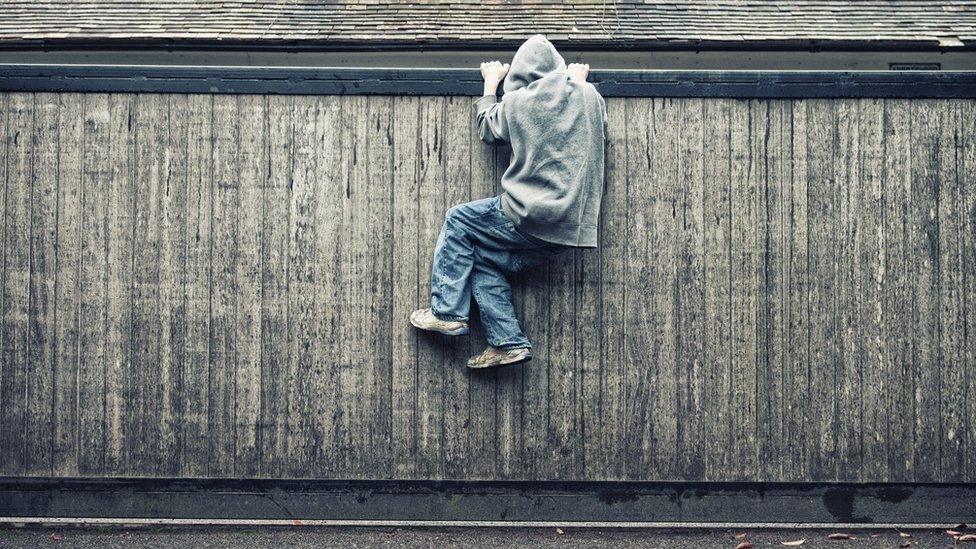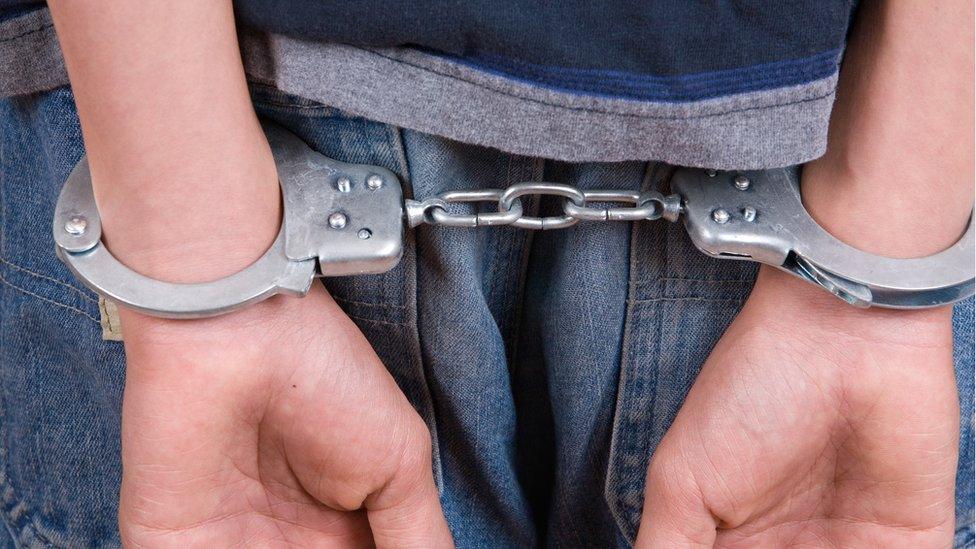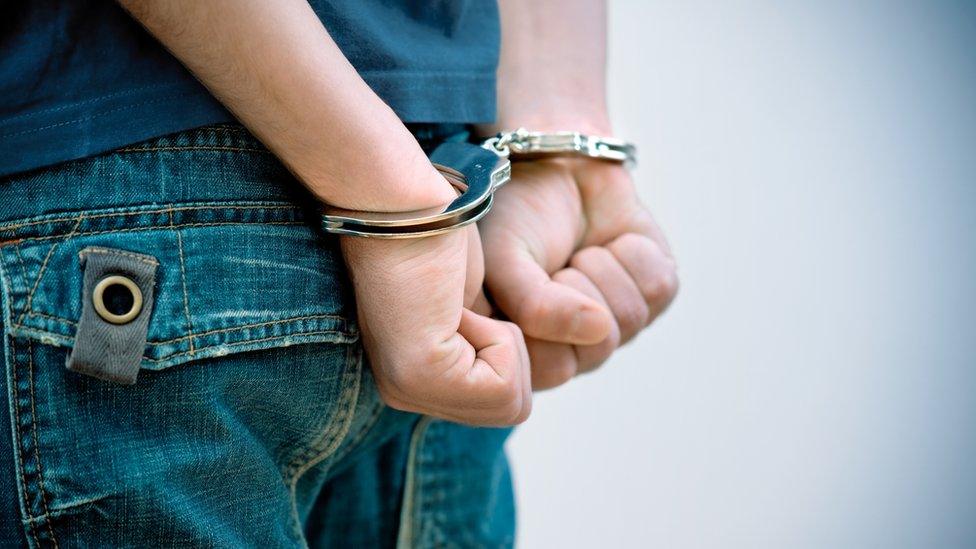Children under 12 can no longer 'commit crime' in Scotland
- Published

Children under the age of 12 can no longer get a criminal record
Regulations have come into force raising the age of criminal responsibility in Scotland.
Previously children as young as eight could be held responsible for criminal acts - the lowest in Europe and one of the lowest in the world.
That has now been raised to 12, below which a child is deemed to lack the capacity to commit a crime.
Campaigners said it should be raised further, and ministers said they would review the change within three years.
The change followed unanimous support at Holyrood in May 2019 for the Age of Criminal Responsibility (Scotland) Act, external, which ministers said would be implemented quickly.
It is the first change in the age of criminal responsibility since 1933 when it was raised from seven to eight.
The move will mean no child under the age of 12 can now be found guilty of a criminal act.
Until the change in the law, primary school children aged eight to 11 could be referred to the Children's Panel on offence grounds and could be given a criminal record.
However, no child under 12 has been prosecuted in a Scottish court since 2011.
The charity Action for Children said the new provisions would ensure children were treated as children within the justice system.

What happens in other countries?
The lowest national age of criminal responsibility is seven in India, Pakistan and Nigeria.
Scotland's new threshold will be higher than the rest of UK, where it is set at 10.
But some other EU states, including Portugal, Lithuania and Luxembourg have it as high as 16.
The UN Committee on the Rights of the Child says 12 should be "the absolute minimum"; anything lower is not considered "internationally acceptable".
A number of Asian countries including China, Japan, North and South Korea and Vietnam set the age at 14, while some South American countries including Ecuador, Colombia and Uruguay have opted for 18.
In the USA, children from the age of 11 up can be charged with a federal offence, but there are 33 states where there is no minimum age of criminal responsibility at all.

Paul Carberry, Action for Children's director for Scotland, said: "We fully support the notion that no eight to 11-year-old should ever be regarded as an offender, nor should they be stigmatised in later life as a result of actions as a child, and now this will be enshrined into law.

An advisory group will consider whether the age should be raised further
"The introduction of these provisions is a major step forward and something that is far more consistent with Scotland's approach of prevention and early intervention."
Scotland's position had been widely criticised, and there have been calls for the new limit of 12 to be raised further.
The UN Committee on the Rights of the Child said it should be raised to 14 "immediately", while Bruce Adamson, the Children and Young People's Commissioner for Scotland, made his view clear that 14 was the "lowest acceptable age."
'Child-centred approach'
The Scottish government said it had set up an advisory group to review the new provisions and it would consider whether the age should be raised further.
Children's Minister Maree Todd said: "These new provisions mean that the behaviour of children under 12 in Scotland will no longer result in them being treated as offenders in the children's hearings system.
"Evidence shows that responding to childhood behaviour in a criminalising, stigmatising way serves only to promote escalation and further harm. That is neither in the interests of the child, nor of the safety of our communities.
"This marks the first chapter of a ground-breaking reform. The act will deliver a progressive, child-centred approach that will make a real difference to children's lives, while victims will continue to get the support they need."
- Published7 May 2019

- Published13 November 2018
